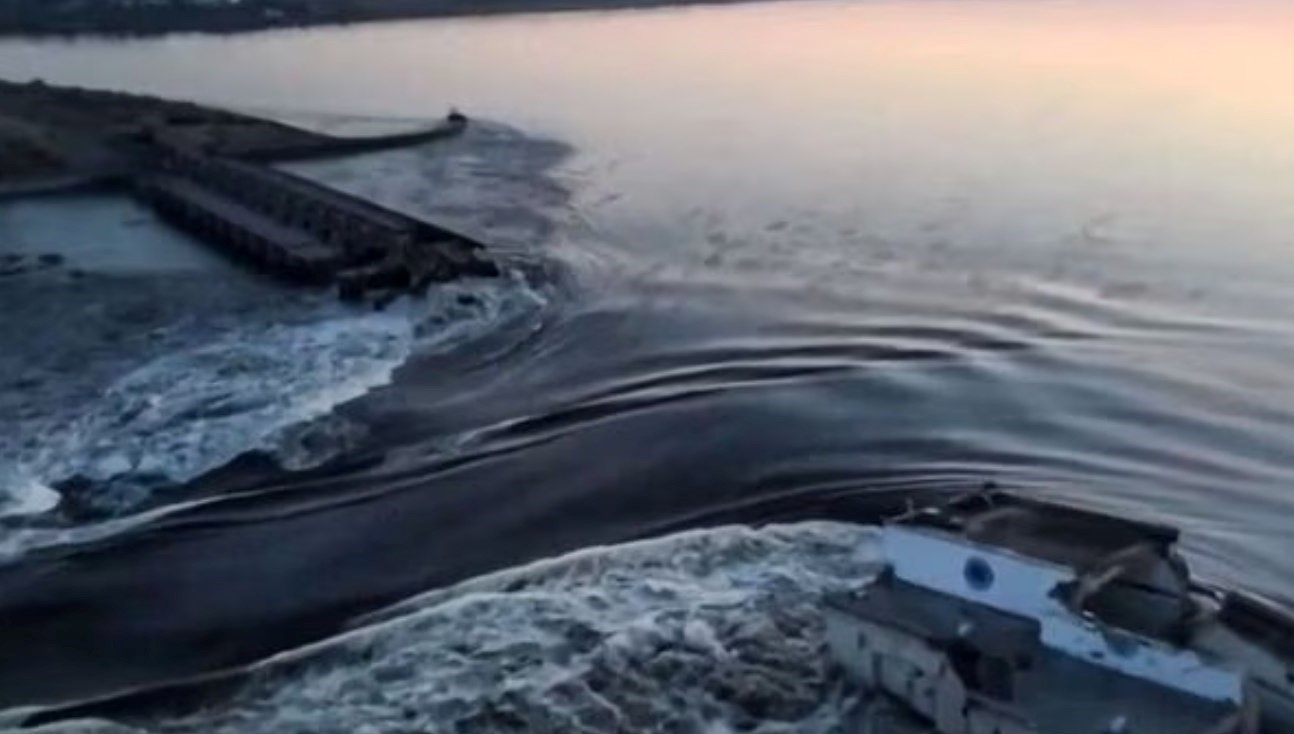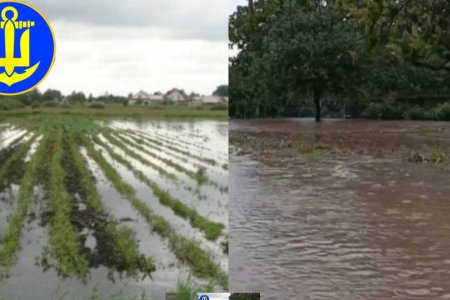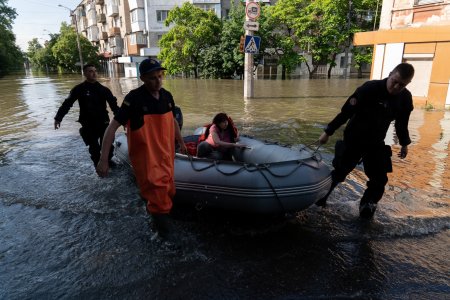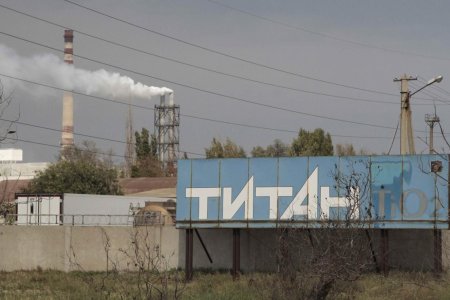
A Russian government resolution from 30 May effectively gave a green light for the catastrophic attack on the Kakhovska Hydroelectric Power Station dam. The decision, which came into force the following day, waives the need for any investigation into accidents on dangerous sites or hydroelectric structures on occupied Ukrainian territory which occurred as the result of military action, sabotage or terrorism.
The decision, reported by the Insider, and available here, treats the illegally occupied parts of the Donetsk, Luhansk, Zaporizhzhia and Kherson oblasts as ‘new Russian territory’ and assumes it will remain under Russian occupation. The government document states that up till 1 January 2028 no technical investigations will be carried out in the case of accidents on dangerous industrial sites or hydro-electric structures. This resolution was passed just days before the first reports that the Russian invaders were overfilling the reservoir and the first satellite images apparently showing some damage to the dam. It was exactly seven days before e the catastrophic breach in the dam which has put thousands of people’s lives in danger and caused unimaginable environmental damage. Kyiv has dismissed Moscow’s claim that the breach was caused by Ukrainian shelling, and the head of NATO and western leaders have already indicated that they consider this to be the latest of Russia’s war crimes against Ukraine.
Russia has obvious military reasons for seeking to obstruct Ukraine’s anticipated counteroffensive, but it has been openly targeting critical Ukrainian energy and other infrastructure since October 2022. Kyiv had long warned that Russia might blow up the dam and in October 2022, the authoritative Institute for the Study of War predicted that Russia might carry out what they called “a false-flag attack on the Kakovska Hydroelectric Power Plant and may believe that breaching the dam could cover their retreat from the right bank of the Dnipro River and prevent or delay Ukrainian advances across it.” While stressing that they cannot definitively say now who was to blame, ISW pointed, on 6 June, to that earlier prediction. All of the reasons cited then remain in place now. The Kakhovska Hydroelectric Power Station and its dam have both been under Russian control since soon after the full-scale invasion which means that any explosion can only have been achieved by the Russians. This was a massive structure, and Ukraine’s President Volodymyr Zelensky is surely right in dismissing any suggestion that the dramatic breach in the dam during the early hours of 6 June could have been caused by ‘Ukrainian shelling’ as claimed by the Kremlin.
Ukraine’s former Deputy Prosecutor General Gundyuz Mamedov is under no doubt that this was a deliberate explosion, and believes that, after all the attacks on critical infrastructure, this new crime could be a turning point. In a brief article, he considers the reasons why the bombing of the Kakhovska Hydroelectric Station may well constitute grounds for a second arrest warrant from the International Criminal Court [ICC]. The first was issued on 17 March 2023 against Russian president Vladimir Putin and his so-called ‘commissioner on children’s rights’, Maria Lvova-Belova for the unlawful deportation and transfer of Ukrainian children from occupied areas of Ukraine to the Russian Federation”.
With respect to the destruction of the Kakhovka Dam, Mamedov notes that the full scale of the disaster is yet to be understood, however the attack can already be viewed from a legal point of view. It is vital, he believes, to stress that this is a probable international crime. Article 56 of the Protocol Additional to the First Geneva Convention specifically prohibits attacks on “works or installations containing dangerous forces, namely dams, dykes and nuclear electrical generating stations if such attack may cause the release of dangerous forces and consequent severe losses among the civilian population.”
The consequences here are enormous with dozens of villages and other populated areas flooded, and a huge number of civilians in immediate, life-threatening danger. Even if the mass evacuation from Ukrainian-controlled areas succeeds in preventing the loss of human life, it is likely that many, if not most, of those evacuated will have lost everything, with no possibility of returning to their homes, at least until another dam is built. Mamedov does not separately mention the inevitable loss of life among animals, but this was recognized by Ukraine’s Emergency Services and Interior Ministry who posted messages on social media asking people to take animals with them if they could, or at least untie them, to give them a chance of surviving the disaster.
The consequences for life and health are not only confined to those immediately facing floods. There will also be a major, and very likely long-term threat to health because of the loss of drinking water.
This, Mamedov stresses, is part of Russia’s consistent policy aimed at destroying critical civilian infrastructure, seen over the winter in dozens of attacks aimed at depriving civilians of heating, electricity, and water.
Although both Ukraine’s Enerhoatom and the International Atomic Energy Agency say that there is no immediate danger to the Zaporizhzhia Nuclear Power Plant, the Kakhovka Hydroelectric Plant played a vital role in providing the nuclear plant’s cooling system.
Mamedov points out that there are also around ten museums which may well be flooded, as well as monuments and other elements of cultural heritage.
Russia has already caused immeasurable damage to Ukraine’s environment and the attack on the Kakhovska Hydro-Electric Power Station is a catastrophe for the ecosystem. Mamedov expresses the hope that this new crime will finally prompt environmental crimes being taken seriously and given an adequate legal assessment. This is particularly important, he adds, as the destruction of the environment is also part of the Russian regime’s deliberate policy.
The attack may constitute ecocide, that is, deliberate actions which can lead to environmental catastrophe. This should revive discussion regarding the inclusion of ecocide as one of the international crimes covered by the Rome Statute to the International Criminal Court.
The manmade and, apparently, deliberate nature of the attack on the Kakhovska Plant also provide grounds for considering this to be a crime against humanity as defined in Article 7 (k) Other inhumane acts of a similar character intentionally causing great suffering, or serious injury to body or to mental or physical health.
There are grounds for believing that personnel within the Russian armed forces were aware of the consequences of the attack on 6 June 2023 and therefore, as with the arrest warrants against Putin and Lvova-Belova, arrest warrants could be issued over suspected crimes against humanity as soon as those who were in command positions are identified.



